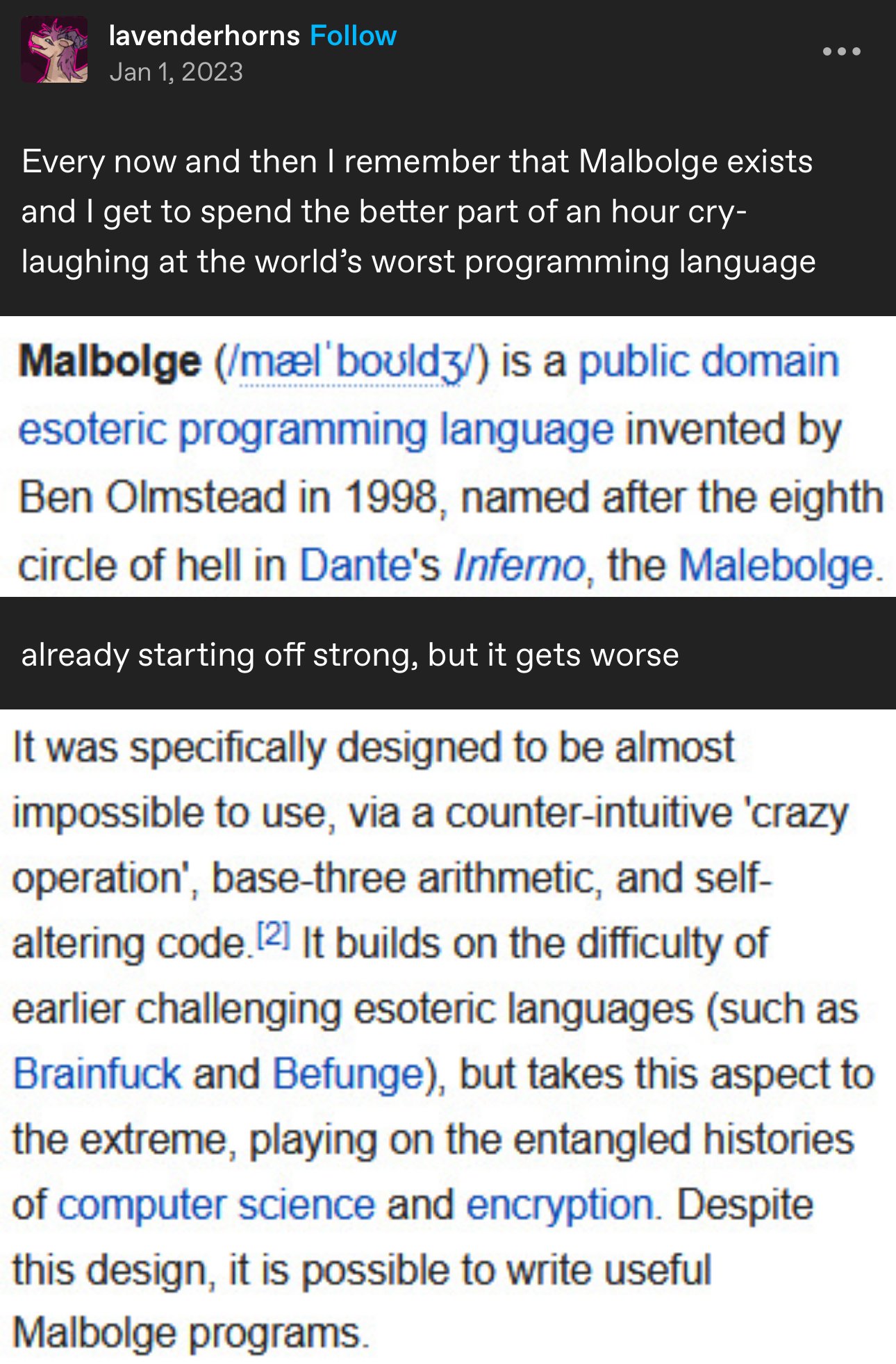this post was submitted on 07 Mar 2024
488 points (99.2% liked)
Programmer Humor
19830 readers
826 users here now
Welcome to Programmer Humor!
This is a place where you can post jokes, memes, humor, etc. related to programming!
For sharing awful code theres also Programming Horror.
Rules
- Keep content in english
- No advertisements
- Posts must be related to programming or programmer topics
founded 2 years ago
MODERATORS
you are viewing a single comment's thread
view the rest of the comments
view the rest of the comments

This is probably a rather controversial topic in the haskell community. Haskell library and base has a tendency to provide “too many“ infix operator (at least IMO), many of which makes code hard to read for beginners and experts alike.
See the discussion here: https://wiki.haskell.org/Haskell_programming_tips/Discussion#Use_syntactic_sugar_wisely
As a professional Haskell developer, I tend to agree. I loathe any and all lens code I find using a ton of operators (though I just dislike lenses in general). Operators from base are generally fine, but for the rest, just use normal functions damnit. Operators suck for code navigation too.
Yeah, it is one of the problem I have about Haskell.
The other two are lazy evaluation makes print debugging almost impossible, you will need to print the entire environment to figure out where you are.
Finally, I feel like List.fold, state monad, lens are basically just working with mutable structure with extra steps. Although this constructs prevent newbies who are not principled enough to effectively use mutable structure from using mutable structure, but it also doesn't help experienced user to write more effective and clean code.
Mutuabilty are certainly not harmless either. For example in ocaml, if you construct the IntSet type twice, they will be two completely different type. But this behavior can be pretty easily avoided by an experienced user.
What do you feel about these features/shortcomings?